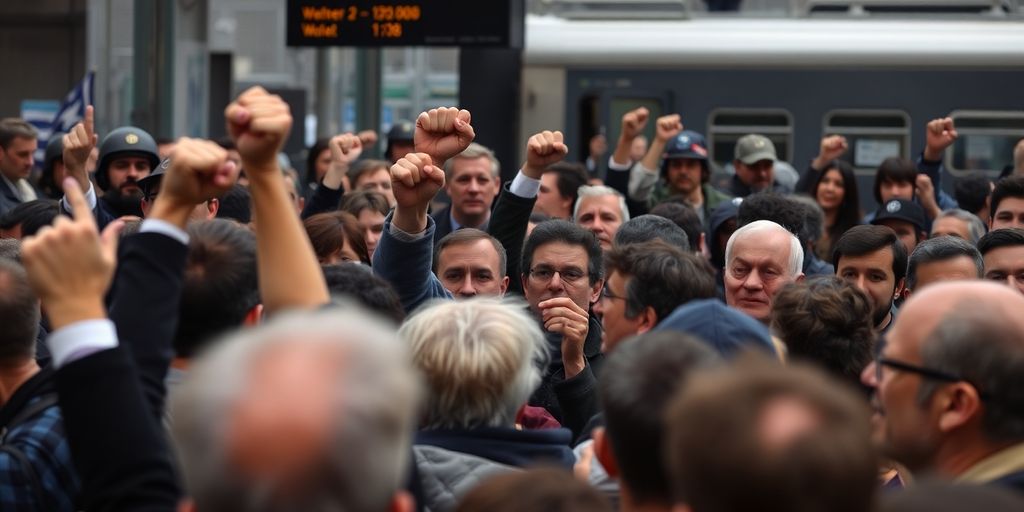Protests erupted across Greece as citizens demanded accountability from the government for a devastating rail disaster that occurred two years ago, claiming 57 lives. The unrest coincided with a parliamentary censure motion against Prime Minister Kyriakos Mitsotakis’ administration, intensifying public anger over perceived negligence in railway safety.
Key Takeaways
- Nationwide protests mark the second anniversary of the 2023 rail disaster.
- Clashes between protesters and police resulted in violence and arrests.
- Opposition parties submitted a censure motion against the government.
- Victims’ families continue to demand justice and accountability.
Background of the Rail Disaster
On February 28, 2023, a tragic collision between a passenger train and a freight train in Tempe, northern Greece, resulted in the deaths of 57 individuals, many of whom were university students returning from a holiday. The incident has since become a symbol of the failures in Greece’s railway infrastructure and safety protocols.
Recent Protests and Clashes
In the lead-up to the anniversary, protests escalated, culminating in violent clashes outside the Greek parliament. Protesters hurled gasoline bombs and fireworks at riot police, who responded with tear gas and baton charges. The unrest was fueled by a general strike that saw widespread participation from various sectors, including transport and education.
- Protest Locations: Major cities including Athens and Thessaloniki witnessed significant demonstrations.
- Public Sentiment: Many protesters expressed their frustration, chanting slogans such as "murderers" directed at the government, accusing it of failing to ensure safety and accountability.
Censure Motion Against the Government
The opposition, led by the Socialist party and supported by smaller left-wing factions, introduced a censure motion against the ruling center-right government. They accused Prime Minister Mitsotakis of shielding officials from accountability and failing to address the systemic issues that led to the disaster.
- Key Accusations: The opposition claims the government has not taken responsibility for the safety failures identified in investigations.
- Government’s Response: Mitsotakis dismissed the censure motion as a political stunt, asserting that his administration is committed to improving railway safety.
The Call for Justice
Families of the victims have been vocal in their demands for justice, organizing protests and calling for a thorough investigation into the disaster. They argue that the government has not done enough to address the underlying issues that contributed to the tragedy.
- Victims’ Families: Many relatives of the deceased have participated in protests, emphasizing the need for accountability and reform in the railway system.
- Public Opinion: A recent poll indicated that a significant majority of Greeks view the rail disaster as a critical issue, with many dissatisfied with the government’s handling of the aftermath.
Conclusion
As Greece grapples with the fallout from the rail disaster, the ongoing protests reflect deep-seated frustrations with government accountability and infrastructure safety. The situation remains tense as the opposition continues to challenge the government, and the public demands justice for the victims of this tragic event.
Sources
- Violent clashes in Athens as protesters demand government accountability for rail disaster, AP News.
- Violence erupts during protests in Greece as government challenged in vote over rail disaster, AP News.
- Greece Consents to Peacekeeping Mission, But Would Withdraw if Peace Were Disrupted, Kyiv Post.
- Clashes erupt in Greece as hundreds of thousands protest deadly train crash, Reuters.






